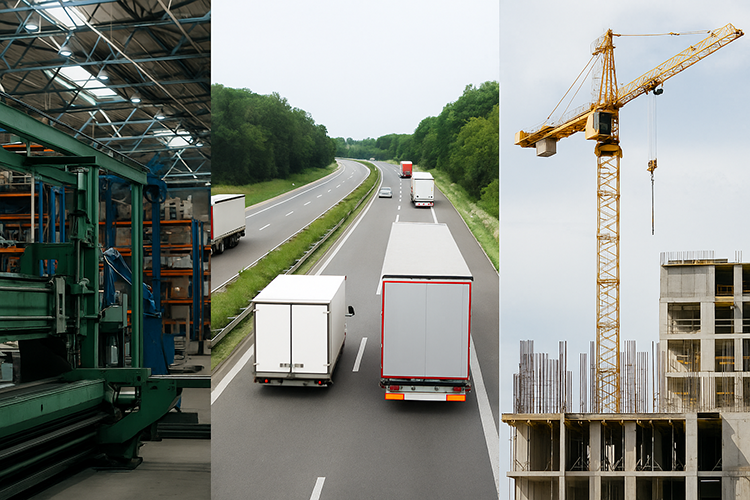2025-10-07
indicators

The latest data from the Czech Statistical Office (ČSÚ) for August 2025 paint a picture of a national economy growing unevenly, with solid performance in construction offset by slowing industrial output and weaker international trade. Czech exports fell by 5.7 percent compared with the same month a year earlier, while imports declined by 4.3 percent. Despite this contraction in both directions, the country maintained a modest trade surplus of CZK 5.6 billion. The drop in exports reflects softer demand across key European markets and persistent pressures on supply chains, while the fall in imports suggests slower business investment and consumer demand at home. The industrial sector, which has been one of the main engines of Czech economic growth in recent years, also showed signs of losing momentum. August figures indicate slower production dynamics compared with the previous months, with weaker performance in several manufacturing branches. Analysts attribute this to global market uncertainty, elevated input costs, and reduced export orders from Germany and other major trade partners. By contrast, construction continued to expand for the tenth consecutive month, with output rising by 17.1 percent year-on-year. Growth was driven mainly by civil engineering and infrastructure projects, supported by public investment and EU-funded programs. The strong performance of the construction industry helped offset the decline in manufacturing and trade, underlining its role as one of the current stabilizers of the Czech economy. Economists note that the August data confirm a shift toward slower overall growth after a strong start to the year. Export-oriented sectors remain under pressure, while high costs and labour shortages continue to limit output in manufacturing. However, sustained activity in the construction market and ongoing investment in transport and housing infrastructure provide a degree of balance. The mixed results suggest that the Czech economy is holding steady but faces structural challenges in competitiveness and productivity. Policymakers are expected to focus in the coming months on maintaining export momentum, easing administrative burdens on construction, and supporting industrial innovation to safeguard growth in the final quarter of 2025. Source: ČSÚ

